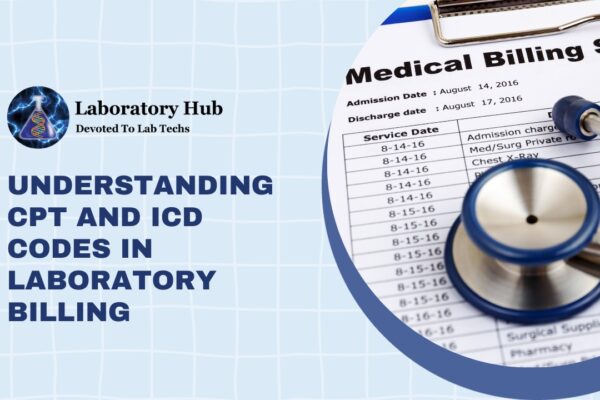Why are transitions important in life?
Introduction
Transitions are an integral part of life, and we all go through them at various points in our lives. Whether it’s a change in career, a new relationship, moving to a new city or country, or the loss of a loved one, transitions can be both exciting and challenging. However, regardless of the nature of the transition, they are crucial for personal growth and development. In this article, we will discuss why transitions are important in life, and how they can help shape us into better individuals.
Opportunities for Growth and Self-Discovery
Transitions provide us with opportunities for growth and self-discovery. When we experience a significant change in our lives, we are often forced to confront our fears, doubts, and insecurities. We may discover new strengths and talents that we never knew we had, or find that we are more resilient than we thought. Transitions allow us to step out of our comfort zones and take risks, which can lead to personal growth and development.
For example, if you are starting a new job, you may be nervous and unsure of yourself. However, as you settle into your new role and begin to learn new skills, you may discover that you have a natural talent for something you never knew before. This newfound confidence and skills can help you excel in your job and may even lead to career advancement.
Increased Resilience and Adaptability
Transitions can also help us become more resilient and adaptable. Life is unpredictable, and we never know what challenges we may face in the future. However, going through transitions can help prepare us for unexpected situations and make us more resilient when faced with adversity.
For example, if you move to a new city, you may have to adapt to a new culture, make new friends, and adjust to a different way of life. These challenges may be difficult at first, but as you navigate them, you will become more adaptable and better equipped to handle future challenges.
Opportunities for New Experiences and Perspectives
Transitions can also provide us with opportunities for new experiences and perspectives. When we experience a significant change in our lives, we are often exposed to new ideas, cultures, and ways of thinking. This exposure can broaden our perspectives and help us become more open-minded.
For example, if you travel to a new country, you may learn about a different way of life and gain a new appreciation for different cultures. This newfound perspective can help you become more empathetic and understanding of others, which can be a valuable skill in both your personal and professional life.
Increased Self-Awareness and Reflection
Transitions can also provide us with opportunities for increased self-awareness and reflection. When we go through a significant change in our lives, we are forced to re-evaluate our priorities and values. This reflection can help us gain a better understanding of ourselves and what is truly important to us.
For example, if you go through a breakup, you may be forced to reflect on what went wrong in the relationship and what you want in a partner moving forward. This reflection can help you become more self-aware and gain a better understanding of your needs and wants in a relationship.
Sign of Life Transitions
Life transitions are periods of change that can be exciting and stressful at the same time. They are inevitable, and everyone goes through them in life. A life transition can be a positive or negative event that can impact your life in different ways. Understanding the signs of life transitions can help you cope better and make the most out of these changes.
In this article, we will discuss the signs of life transitions that you should look out for and how to manage them.
Loss of Interest
One of the most common signs of a life transition is a loss of interest in activities you once enjoyed. You may start to feel like you have no motivation to do anything, and things that once brought you joy no longer do. This can happen when you are going through a significant life change, such as a job loss, divorce, or the death of a loved one.
Emotional Instability
Another sign of a life transition is emotional instability. You may experience sudden mood swings, feel more irritable than usual, or have trouble sleeping. This is normal, and it is essential to acknowledge these emotions and find healthy ways to cope with them.
Lack of Focus
During a life transition, you may find it challenging to concentrate on tasks or make decisions. You may feel overwhelmed by the changes and have trouble focusing on anything else. This can lead to a lack of productivity, which can add to your stress.
Physical Changes
Life transitions can also have physical symptoms. You may experience headaches, stomach aches, or other physical ailments. Stress can weaken your immune system, making you more susceptible to illness.
Relationship Struggles
Life transitions can also impact your relationships. You may find it difficult to communicate with your partner, friends, or family members. You may feel like they don’t understand what you are going through, which can lead to tension and conflict.
Also Read: Explanation on why medical billing services is important?
How to Manage Life Transitions
Acceptance
The first step in managing a life transition is accepting that it is happening. Denying or avoiding the change will only make it more challenging to cope with. Recognize that change is a natural part of life and that you are capable of adapting to it.
Self-Care
During a life transition, it is crucial to take care of yourself. Make sure you are eating a healthy diet, getting enough sleep, and engaging in regular exercise. Take time for yourself to do activities you enjoy, such as reading, listening to music, or spending time with friends.
Seek Support
During a life transition, it is essential to have a support system. Consider seeking professional help if you are struggling to cope with the changes.
Take Action
If you are struggling with a life transition, taking action can help you feel more in control. Identify specific goals that you want to achieve and take steps to reach them. This can help you regain your confidence and sense of purpose.
Stay Positive
Finally, it is crucial to stay positive during a life transition. Focus on the opportunities that the change may bring and try to maintain a positive outlook. This can help you see the change as a growth opportunity rather than a setback.
Treatment of life Transitions
Life transitions can be difficult and stressful, but there are many strategies and treatments that can help individuals navigate these changes. Some effective treatments for life transitions include:
Psychotherapy
Psychotherapy, also known as talk therapy, can be helpful in addressing the emotional and psychological aspects of life transitions. A therapist can provide support, guidance, and tools to manage stress and cope with change.
Support groups
Joining a support group can be helpful in finding others who are going through similar experiences. This can provide a sense of community and validation, as well as an opportunity to learn coping strategies from others.
Mindfulness meditation
Mindfulness meditation can help individuals develop skills to manage stress and stay present in the moment. Practicing mindfulness can also help individuals develop a greater sense of acceptance and resilience in the face of change.
Exercise and physical activity
Engaging in regular physical activity can help reduce stress and anxiety, improve mood, and promote overall well-being. Exercise can also be a helpful outlet for processing emotions and reducing tension.
Conclusion
In conclusion, transitions are an inevitable part of life that can be both challenging and exciting. While they may come with uncertainty and discomfort, they are crucial for personal growth and development. Transitions provide us with opportunities for self-discovery, increased resilience and adaptability, new experiences and perspectives, and increased self-awareness and reflection.
Frequently Asked Questions (FAQs)
Transitions in life are changes that individuals go through during various stages of their lives. These changes can be physical, emotional, or environmental.
Transitions are important because they help individuals adapt to new situations and experiences, learn new skills, and develop new perspectives.
Common transitions in life include moving to a new home, starting a new job, getting married, having a baby, retiring, and experiencing the loss of a loved one.
Transitions can be difficult for people because they often involve uncertainty, change, and the need to adjust to new circumstances.
Benefits of going through transitions can include personal growth, increased resilience, improved adaptability, and the development of new skills.
Transitions can help us develop resilience by teaching us how to cope with change, manage stress, and overcome challenges.
Strategies for coping with transitions include maintaining a positive attitude, seeking support from others, practicing self-care, and setting goals for the future.
Yes, transitions can be positive experiences if they lead to personal growth, increased happiness, and a sense of fulfillment.
Transitions can affect our mental health by causing stress, anxiety, and depression. However, they can also promote resilience and personal growth.
Being prepared for transitions can help us cope with change and uncertainty more effectively, reducing stress and promoting a sense of control.
Transitions can impact our relationships by changing the dynamics between individuals, creating new opportunities for connection, or leading to periods of distance and isolation.
We can support others going through transitions by offering empathy, encouragement, and practical help.
We can prepare for major life transitions by setting goals, seeking support from others, and practicing self-care.
Yes, transitions can be opportunities for personal growth by promoting new experiences, learning opportunities, and challenges.
We can embrace transitions by adopting a growth mindset, focusing on the positive aspects of change, and seeking support from others.







